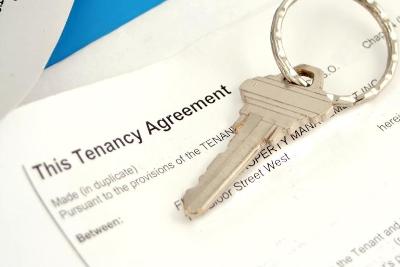Renting in the private sector

How to rent
Central government has created a guide for tenants and landlords in the private rented sector to help them understand their rights and responsibilities. It provides a checklist and more detailed information on each stage of the process, including:
- what to look out for before renting
- living in a rented home
- what happens at the end of a tenancy
- what to do if things go wrong
Visit How to Rent - Gov.uk guide to find out more.
Housing conditions
The property you rent must meet the required standards with regards to health, safety, and welfare. If you rent from the private sector and your home is in poor condition, you should always speak to your landlord first to try to sort out any problems before contacting the council.
Housing Health and Safety Rating System
The property that you rent must be free from health and safety hazards. Hazards are assessed using the Housing Health and Safety Rating System (HHSRS). You can find more information about these standards on the Shelter website. Common problems within the home include issues with damp and mould, poor insulation, problems with heating, or homes without smoke detectors.
Heating in privately rented properties
All properties should have some kind of fixed heating. This could be gas central heating, electric storage heaters or other electric heaters that are fixed to the wall and spurred in. Spurred in means that they are wired directly into the electricity supply, plug in heaters are not an accepted form of heating.
Condensation and mould growth
Condensation is caused when there is excess moisture and cold conditions. It is usually identified through the black mould that is present. The condensation and mould documents below have advice and tips on how to keep your home free from damp and mould.
Dealing with damp and condensation (PDF) [477KB]
Centre for Sustainable Energy - Condensation, damp and mould guide
Reporting a private housing problem
If you need to report a concern about a Housing Association, you should always contact them direct first. Read our guidance on complaining to Housing Associations.
Otherwise, if you are unable to reach an agreement with your landlord or managing agent you can report the problem to us as we have a duty to investigate these reports. This includes reporting concerns about houses in multiple occupation (HMOs).
An officer may need to visit your home to carry out an inspection. There is a legal requirement that your landlord is given notice of such an inspection. The leaflet below gives information on what to expect from an inspection and the options available following an inspection.
GOV.UK has further information on privately renting a property.
Civil Penalties Policy
Under the Housing Act 2004, the councils have the power to impose a civil penalty of up to £30,000 where a landlord has failed to comply with the relevant legislation. A civil penalty is a serious matter. The service of a Civil Penalty Notice is a factor the councils can take into account when deciding whether to instigate criminal proceedings in future cases. In addition the councils may also take it into consideration when determining whether a person is a fit and proper person and whether there are satisfactory management arrangements in place.
Civil Penalties Policy (PDF, 296 KB)




